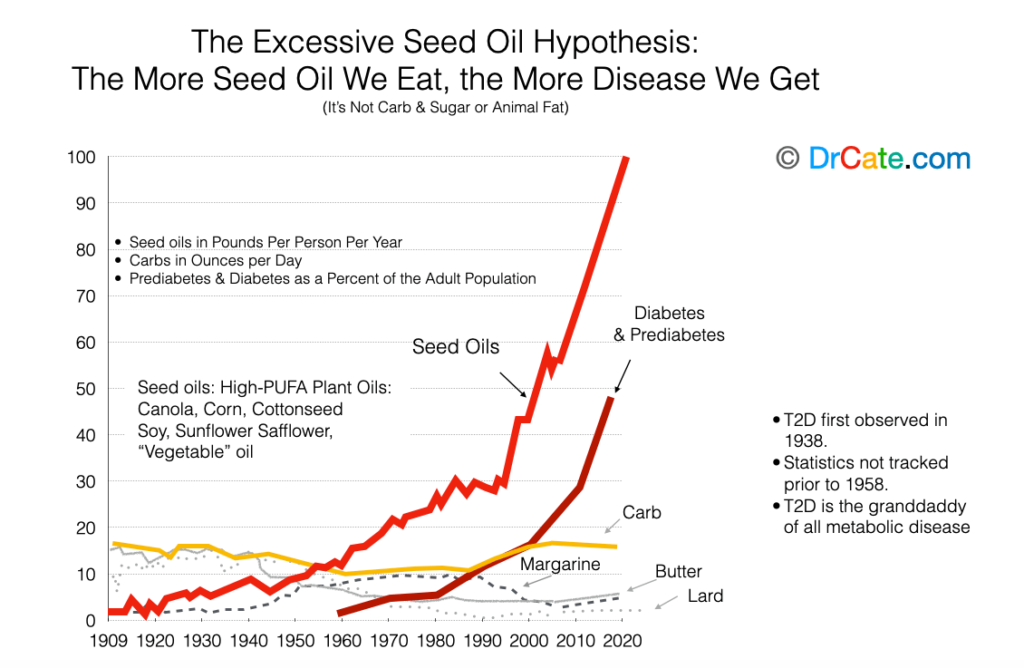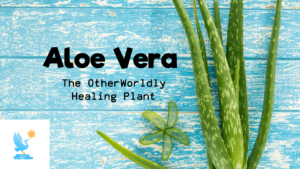Is Canola Oil Bad For You? Canola Oil Exposed

Is Canola oil bad for you?
In this article, we will dive deep into this question so you can make your own educated decision.
Did you know that fat is one of the key building blocks of your cellular matrix?
Putting low-grade, cheap, or toxic oil into your body is no way to treat this amazing human body we are each gifted.
We require high-quality fat to produce energy, build our hormones, and keep our minds sharp.
What’s more, our brains are made up of 60% fat.
But if you put
- Highly heated
- Genetically modified
- Nutrient-stripped
- Bleached fats
into your vessel, the result is major inflammation, which cascades into many modern diseases if consumed regularly.
So, let’s dive deeper into the question: is canola oil bad for you?
We will discuss important findings, medical research on the topic, and personal experiences about the question, is Canola oil bad for you?
Intro To Canola Oil
Canola oil hails from a surprising ancestor – the rapeseed plant.
Years of careful breeding transformed this once bitter cousin of broccoli into a low-erucic acid oilseed, earning it the moniker “canola” (a blend of Canada and “ola,” Latin for oil).
Today, this oil is in almost every packaged dressing on the shelf at your local store.
It is the main oil restaurants nationwide use to make dressings to cook and fry food in.
It is lauded for its neutral flavor, high smoke point and low cost.
So why is it in every restaurant across the country or every Dollar General store under fluorescent light degrading it further whilst in a flimsy clear BPA-filled plastic bottle easy to go rancid?
Is this oil cheap and easy to access because it is good for you?
Or does it come with a price?
A price to your cellular matrix and your cellular health.
Canola Oil Processing
- Breeding Concerns:
When we look at the question, is canola oil bad for you?
We must look at the first shadow – its genetic modifications.
Bred from rapeseed, it is genetically engineered, going through:
- refining
- bleaching
- deodorizing
- degumming processes.
This processing, oxidation, and rancidity (from heat and light) are now huge causes for concern in inflammation in your tissues.
What’s more, the lack of nutrients such as vitamin E is taken out, which is key in handling oxidative substances such as this.
One of the most concerning aspects of the process is the use of hexane to extract the oil.
Hexane is a main component in gasoline and is a known neurotoxin.
Although little is left after processing the canola oil, any amount is unhealthy for your brain or body.
Exposure to hexane can cause nerve damage, headaches and respiratory challenges.
2. Chemical Cocktail:
Once harvested, canola seeds face a barrage of chemicals.
Herbicides like glyphosate, notorious for disrupting gut health and potentially contributing to chronic diseases, are often used as pre-harvest weed control.
Furthermore, the seeds are treated with fungicides and insecticides, leaving residues that may linger in the final product.
3. Nutritional Disruption:
The genetic modifications implemented in canola affect its nutritional profile.
Studies suggest reductions in certain beneficial nutrients like vitamin E and other antioxidants.
Additionally, the balance of omega-3 and omega-6 fatty acids in GMO canola oil becomes extremely skewed towards pro-inflammatory omega-6s, contributing to chronic health conditions.
As of today, 95% of the canola oil on the market is genetically engineered.
4. Glyphosate Residue:
Again herbicides like glyphosate are heavily used to cultivate GMO crops, like canola.
Residues of these chemicals transfer to the final product.
Glyphosate has been linked to various health problems, including the following:
- Gut dysbiosis
- Cancer
- Reproductive issues
5. Long-Term Effects:
The long-term health consequences of consuming GMOs are still largely unknown.
Studies on animals suggest potential negative impacts on
- organ function
- metabolism
- reproductive health.

Restaurants and Seed Oils
Have you ever eaten at a restaurant and felt terrible afterward?
Joint pain, headaches, or anything like that?
It could be due to exposure to these toxic oils.
Restaurants use these seed oils in cooking, frying, soups, stews, and sauteeing vegetables.
Whether you ordered a salad with dressing (canola typically the base), fried french fries, or a piece of fish, it was likely prepared with canola oil.
I did some investigating and went to a farm-to-table restaurant using grass fed meat and organic or wild harvested produce.
They even mentioned it was all made from scratch down to the dressings.
But when I mentioned I was highly allergic to soy and canola oil and would need to stay away from it, the truth came out.
Even the dressings were from a bottled base that had canola oil.
I remember going to a restaurant and seeing duck-fat fries on the menu.
But come to find out, asking the server, the truth was they were first deep fried in cheap canola oil, then garnished in duck fat.
We need to educate restaurant owners who seem to care about the health of their patrons to stop the use of these toxic seed oils.
Is Canola Oil Bad For You?
In my opinion, it is bad for you, and a lot of the data and research points to this same conclusion.
If you look at the studies on trans fats from hydrogenated oils they may be contributing to the following diseases:
- Stroke
- Diabetes
- Cancer
- Obesity
You may also want to research this and see for yourself. Better yet just listen to your gut.
Here is the kicker: even if the label on canola oil says no trans fats, it likely is in that oil.
This is because if it is less than .5 grams, it does not have to be listed on the bottle. Yikes.
The issue with trans fats in vegetable oil is from the processing it goes through.
This is very different than say raw grass fed milk and unnatural for our bodies.
In the 1880’s, a new way to mill seeds came out, which removed the bran and the germ. This is how these PUFA’s came into existence.
Dairy does contain some natural trans fat, but it seems that the processing effects in seed oils are what causes the health problems.
It was not until seed oils were introduced on a massive scale that the health problems we see today increased.
Hopefully, this answers the question accurately: Is Canola bad for you?
Seed oils, such as soy, sunflower, corn, and rice, are also issues as they cause inflammation due to having excessive Omega 6 fatty acids.
1. Inflammation and Oxidative Stress:
Animal studies: Research on rats and yellow croaker fish suggests that diets rich in canola oil may increase inflammatory markers and oxidative stress, factors linked to various chronic diseases.
Human study: A 2018 study found that consuming heated canola oil led to increased inflammatory markers in human volunteers compared to olive oil.
2. Memory and Cognitive Function:
Mouse study: Chronic exposure to a canola-rich diet in mice was associated with significant harm to memory function and increased body weight.
Human study: While limited, a yearlong study with older adults indicated that replacing refined oils with olive oil potentially improved cognitive function.
3. Metabolic Syndrome:
- Observational study: A large study observed a possible link between canola oil consumption and an increased risk of metabolic syndrome, characterized by a cluster of factors raising heart disease risk.
4. Processing Concerns:
Chemical use: Canola production often involves herbicides, fungicides, and high-heat extraction with solvents like hexane, potentially leaving trace residues in the final product.
Refining methods: High-heat processing and chemical bleaching may generate trans fats, known to promote inflammation and increase heart disease risk.
5. Omega-3 Controversy:
ALA vs. DHA/EPA: Canola oil’s primary omega-3 is ALA, which our bodies struggle to convert effectively into the more readily usable forms (DHA and EPA) found in fatty fish.
Potential loss of benefits: High-heat cooking further damages these delicate fats, potentially diminishing their health benefits.

Linoleic Acid | Toxic In Excess
What is happening in our modern society is that the intake of Omega 6 is far surpassing the omega 3 intake.
It is not a matter of just adding in more omega 3 but seriously taking a look at how much omega 6 you are taking in, especially in the form of highly toxic seed oils that are heat treated, bleached, and deodorized.
The amount of linoleic acid in these seeds is considerable.
Too much linoleic acid is a major contributor in ill health as it initiates oxidation and inflammation in the cell structure.
We need a little linoleic acid but I find it hard to believe anyone would lack getting that in the modern diet.
Especially if you take in a handful of seeds or nuts per day.
Even if you don’t eat nuts and seeds and are a carnivore if you eat chicken or turkey and it is not fully pasture raised you are getting a nice dose of linoleic acid since the animals were likely fed grains and corn.
Even farmed fish would have this issue.
So it is a matter of making decisions to leave behind toxic seed oils, especially those that are highly heated as is the case in canola oil.
With all the free radicals that this creates in the body, it is a recipe for:
- Cardiovascular inflammation
- Liver degradation
- Blood vessel scarring

Canola Oil Alternatives
If you want a well-oiled machine, you need to put in premium-quality fats.
For the human body these fats are fats that:
increase your mitochondrial energy production so you have plenty of stamina and brain power to live a vital life.
They are fats the nourish the brain tissue and promote a health gut microboiome.
Healthy fats with all their nutrients left intact, can handle heat without going rancid quickly.
Great healthy fats to use in your diet are:
Grass Fed Raw Pastured Butter
Macadamia oil (Macadamia has the least amount of linoleic acid of any of the nuts)
These fats won’t cause neuroinflammation.
More on Restaurants & Seed Oils
If you are at a restaurant, ask them to cook your food in butter, not toxic seed oils.
Even still, there is likely cross-contamination or some level of toxic seed oil in their foods.
You are better off avoiding restaurants unless it is a highly conscious one.
You can, for the most part, guarantee most salad dressings are full of toxic seed oils.
Perhaps your best bet is to ask for olive oil and vinegar.
Unfortunately most of the olive oil has been adultered with seed oils like cheap sunflower oil.
Even avocado oil has this issue.
You have to really investigate the brand to know if it is truly avocado oil.
Often I like to stay away from oils in general unless it is a medicinal one such as black seed oil.
I tend to opt for making my dressings with whole food coconut meat or whole avocado.
Here are recipes you may enjoy.

Detox From Canola Oil
You can take the supplement carnosine which can help clear excessive amounts of linoleic acid from your body.
You may also want to cleanse and tone your liver.
This is something we need to do regularly since our livers are our main filter.
Eating bitter foods as a tool can greatly assist the liver to detoxify and purge toxins.
Implore the fresh roots of turmeric and ginger tea, roughly chop and pour boiling water over them to steep into an anti-inflammatory tea.
Coffee enemas can also help to clean up the liver.
And of course a tried and true liver flush will help lessen the burden on your bodies main filter.
But the main way to detox from canola oil is to avoid it at all costs.
Make nutrient rich meals at home, stick to the fats suggested above when creating your favorite foods and keep your liver healthy with herbal teas and bitter foods.
Is Canola Oil Bad For You Final Thoughts
The data, charts and research provided gives us clear red flags on the dangers of canola oil.
We saw a rise in degenerative diseases once these seed oils were introduced into America.
What’s more, is they are adultered, being stripped of nutrients and void of quality fats to nourish the tissues, specifically the brain.
Is canola oil bad for you? In my experience and research it surely is.
Hexane is a known neurotoxin and is the very solvent used in extracting canola oil.
I avoid it at all costs and implore you to do the same if you care about your health.
We discussed the impact of canola oil on your mitochondria, brain health, gut health and how it can cause major inflammation through out the body.
We know that it is linked to metabolic diseases.
We offered alternatives such as ghee, butter, and tallow.
We mention using whole food fats like avocado and coconut meat to keep your body brimming with good fats so you can burn clean and efficiently like a well-oiled vessel.
To detox from canola oil we mentioned carnosine supplementation and rescuing your liver with detox methods such as coffee enemas.
This post was about the question, is canola oil bad for you?
We hope that this enlightened you to the truth about canola oil and what to do about it so you can experience a healthy lifespan.











